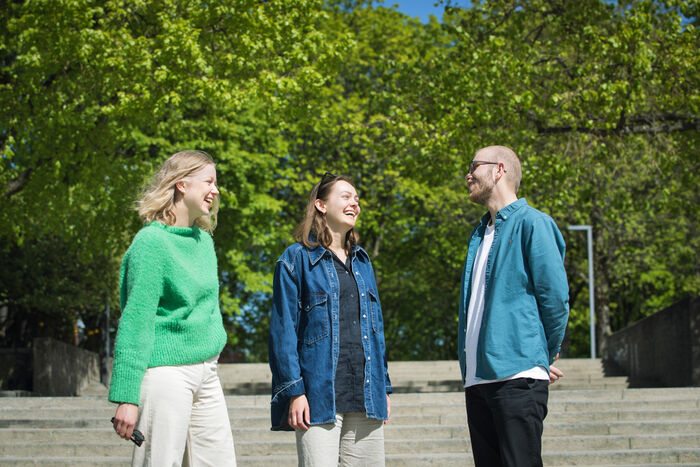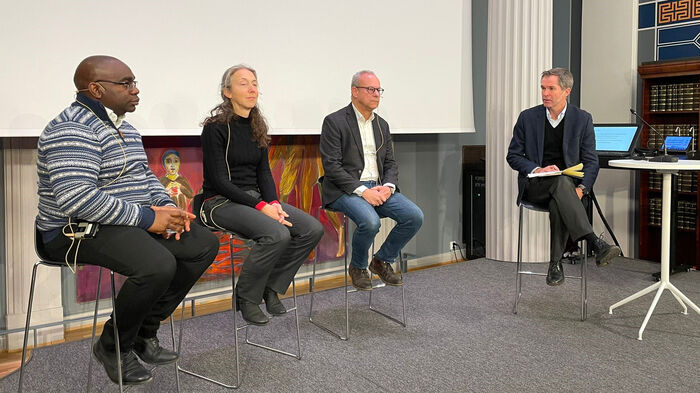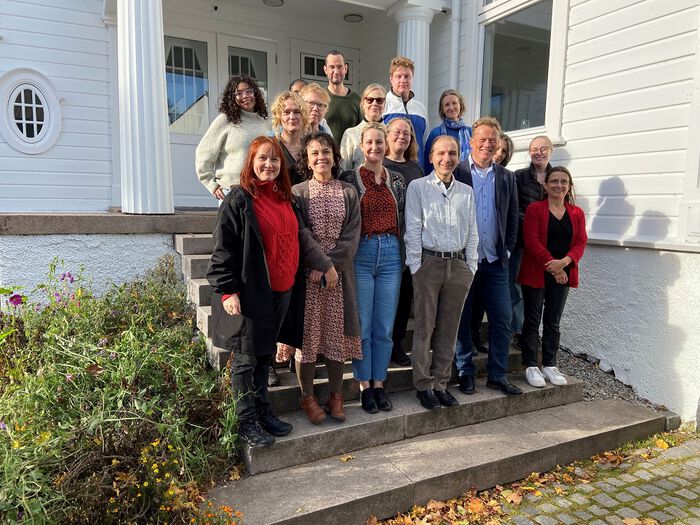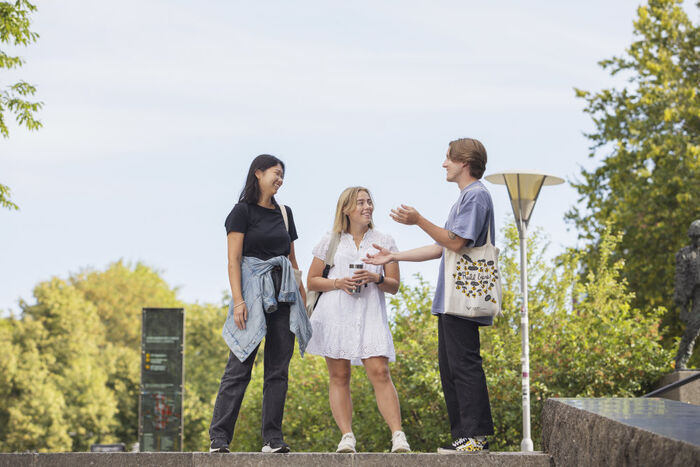Health students' trip to Geneva written by student Janessa Sochima Aneke.
News
In order to recieve newsletters, updates and event invitations from SUSTAINIT and all three centres, you can subscribe to the SUSTAINIT e-mail list.
“I realized that antimicrobial resistance is one of the biggest threats we are facing in global health today.”
With his research project “EquityAMR”, Professor Sundeep Sahay from the Department of Informatics explores AMR as it is one of the biggest threats we are facing in global health. Through his research project he aims to build a more multidisciplinary view on AMR and strengthen public health systems.
Shared offices will strengthen the Sustainable Health Unit
“Trust is really the glue of society. It is what binds us together.”
With his research project ‘Pandemic Rhetoric’, Professor Øyvind Ihlen from the Department of Media and Communication explores understanding on how trust is built during a pandemic outbreak. In his research he aims to understand the processes and negotiations that are taking place regarding risk and trust as well as to understand how public health authorities are communicating throughout a crisis.
“We know even less about the immune system as compared to the virus, so clearly, that is where my focus should be”.
Gunnveig Grødeland, head of P1H, explores the understanding of the interaction between a virus and a host. Furthermore, she works on the use of vaccination to modulate immune responses to achieve optimal protection against new and emerging viruses.
Students want to specialise in sustainable health while studying for their master's degree.
We have almost managed to forget the corona pandemic and all that it entailed, but we remember that good vaccines were quickly made. Can we expect the same next time?
Concepts that Matter – Debating Democracy is a new Honours Certificate at University of Oslo. Application deadline is July 1, 2024.
Infection with influenza H7N9 ("bird flu") has a mortality rate of around 39%. Should the virus change so that it can spread from person to person, we are likely to face a serious pandemic.
Nobel prize winners May-Britt Moser and Edvard Moser traded research-policy advice with Prime Minister Jonas Gahr Støre and others at the Norwegian Academy of Science and Letters
Women’s access to positions of power and participation in decision-making processes in the health sector remain a huge challenge. Around 70 precent of health workers globally are women. Yet only one out of four health leaders are women. On the International Women’s Day, Women in Global Health Norway and the Centre for Global Health, SUSTAINIT (CGH) celebrated two Norwegian women who have made an exceptional impact in global health, Gro Harlem Brundtland and Sigrun Møgedal.
Our first internal research project, "A Digital Twin for Vaccination Strategies at Geographic Scales," will be starting this semester. This innovative project aims to develop a digital twin model that will enhance our ability to predict transmission patterns under varying levels of vaccine efficacy against current and future viruses.
Richard Hatchett, Chief Executive Officer of the Coalition for Epidemic Preparedness Innovations, will visit the University of Oslo in September to receive an honorary doctorate. In celebration of that event, P1H will organize a seminar showcasing Norwegian vaccine research.
Jens Petter Berg led P1H successfully through its startup phase as the interim leader. Now, Gunnveig Grødeland takes over as the new leader.
A new Norwegian network for Planetary Health will raise awareness of the interdependent relationship between human health and the health of the planet.
The Global Health Norway Conference 2023 left attendees with a renewed sense of optimism and determination to contribute to the fight for health equity. It provided a platform to discuss, learn, and reflect on the lessons from the pandemic and the steps needed to build resilient and equitable health systems.
The conference is on Medical and Legal Knowledge and the Problematic of Translation, March 6–7, 2024. Deadline for submission: December 10, 2023.
The Centre for Global Health is opening up for applications for one additional Research ExceLlence and Innovation in Global HealTh (RELIGHT) project for the 2022-2024 period. The application deadline was 22 November 2023.
Professor Nils Chr. Stenseth, deputy head of the Center for Pandemics and One-Health Research (P1H) at SUSTAINIT, has been awarded an ERC Synergy Grant of ten million euros for plague research.
The SHE Corpus is a new resource developed by the Centre for Sustainable Healthcare Education to enable students and researchers to investigate the key concepts that underpin the practice and ethos of modern medicine as well as the discourses on sustainability in the field of healthcare.
MEDRA is an acronym for The Medicalisation of Democratic Rights on the Debate about Abortion. MEDRA is a research group in SHE with funding from UiO:Democracy.
Women in Global Health Norway is happy to welcome Tore Godal as our new Goodwill Ambassador. Tore Godal's contributions to global health throughout his career cannot be overstated.
Hepatitis B virus takes nearly one million lives every year, mainly in east Asia and sub-Saharan Africa where people usually acquire the infection in early childhood. People infected with hepatitis B virus rarely have symptoms before they have developed end-stage liver cirrhosis or liver cancer. Therefore, few know that they are infected and even fewer receive life-saving antiviral treatment.
From fall 2023, master’s students at the University of Oslo can strengthen their education with an Honours certificate in sustainable health.
Circle U. alliance is building a shared virtual campus for students and staff. SUSTAINIT Head Eivind Engebretsen has been appointed Dean of the Open Campus and will lead the work.


.jpg?alt=listing)





















